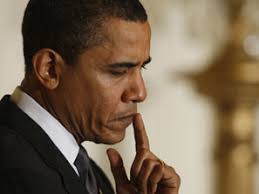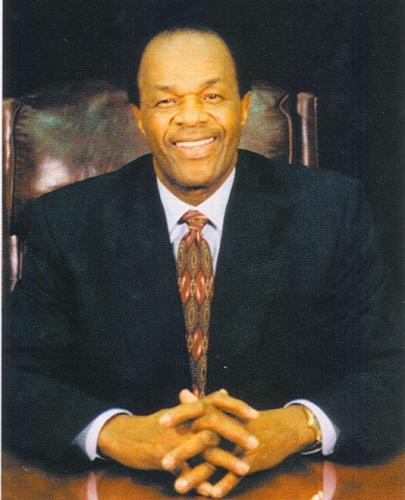
photo: Joi Louviere, Washington Post
The Majority: So black people are upset that a white girl won the campus queen title at historically black Hampton University?
The Minority: Don't say "black people." It's some black people, not all. Even in the picture showing the girls who didn't win the contest, only two out of three look pissed.
The Majority: If it was white people who were saying that they were upset because somebody who won something wasn't white, you wouldn't be satisfied hearing that it was just "some," would you? No, you'd be saying that it was racist, and that any of it was too much. Are you gonna say the same about this?
The Minority: Nope, because it isn't the same thing.
The Majority: Yeah, sure, it's not the same because you're the ones who want to do the excluding. When you're dishing it out, it's fine and dandy, but when you're on the receiving end, it's a national crisis, right?
The Minority: Well, sort of, but not completely.
The Majority: That's real helpful.
The Minority: Here's the deal. If you won't let the kids from down the street into your little club, and you tell them, "Go away and get your own club," you shouldn't be surprised that they'd get mad that they're not allowed to play. And you shouldn't be surprised when, after they get mad, they do go away and get their own club. When they do that, it doesn't make much sense for you to come demanding to get let in.
But let's say you do get let in -- and the kids down the street decide they're going to make you club president for the week. Shouldn't the kid who was gonna be club president that week be mad? Shouldn't he think that the folks who did the excluding in the first place had no business coming around to butt into the club that was only started as a reaction to them being jerks? He's been double dissed. His antagonism toward you isn't the same as you not wanting to let him into your club in the first place.
The Majority: All well and good. But this isn't a club, this is a university. It isn't too likely that any Hampton students were told that they couldn't go to a school because they were black. So they can't be righteously angry at this girl because of anything done to them.
The Minority: This isn't about attending the school. Nobody is saying that she can't come to Hampton at all. This is about winning a beauty pageant.
The Majority: And nobody kept any of these girls from entering the Miss America contest or any other beauty pageant they want.
The Minority: It's not just about entering, though. It's about being able to believe that there is a place where your looks are valued enough that somebody who looks like you can win the beauty pageant. Women of all sizes, shapes, and colors want to believe that somebody considers their looks beautiful, and their husbands, boyfriends, fathers and brothers want to give them that validation. Maybe it's neanderthal paternalism, but one of the ways that validation comes is through pageants whose results say, "These women are our ideal." When you were thinking that a particular contest was one where you or your girlfriend would be getting that validation, it's no fun to see a result that says that the person who was embraced down the street, where you were rejected, can also come down to your clubhouse and get the prize you were hoping for.
The Majority: Why should anybody still need special validation? Vanessa Williams was Miss America before these Hampton kids were even born, and black Miss Americas have come along often enough that they're not even headline news any more.
The Minority: The three runner-up girls in that picture don't look like Vanessa Williams, though, do they? If ladies that looked like Serena Williams were the regular Miss America-winning black women, then these girls probably wouldn't be thinking that they need some special place for validation of their beauty.
The Majority: So special places for validation of white beauty are okay, too?
The Minority: There's no need for special validation when the default mode is giving you constant validation already. There are special contests for plus size women and petitie women, but there don't need to be special contests for women taller than 5-9 who wear size 4 or less.
The Majority: What if you're just a reasonably nice looking white girl that doesn't look like Jessica Biel? Special contests for your particular look, too?
The Minority: Well, "white" is not a particular look. If you look like Nicole Kidman, you're not gonna be entering a contest for Catherine Zeta Jones lookalikes. "White" doesn't really mean anything affirmative; it's more a negative, as in "not black, Latin, Asian or Native American." If what you're trying to promote is "Anybody But Your Kind," Our Kind is not gonna be too fond of that concept.
But if you're promoting a particular look, it happens all the time already, and nobody gripes. The queen of the St. Patrick's Day Parade in Chicago, from the looks of things, is chosen to promote somebody's idea of what an Irish beauty is supposed to look like, which is apparently much more likely to be a redhead than an Uma Thurman or a Rebecca Romijn.
When black women with looks from Alicia Keys to India Arie were all treated the same by the mainstream, they were all considered part of the mix that needed some love that nobody else seemed inclined to give. As time goes by, one end of that spectrum has a bit more chance to get validation elsewhere, but the other hasn't quite received the same affirmation that her kind is prized, too. She's going to feel the same dis by the Hampton result as the redheaded, freckle-faced Irish lass is going to feel if Gisele Bundchen is the next St. Patrick's Day queen.
The Majority: Fair enough. But is any of this the fault of this young lady that won the Hampton pageant?
The Minority: Probably not. So heckling or otherwise disrespecting her would not be cool. This is one of those situations where folks should be aware of the difference between being bothered by the person and being bothered by the statement made by the person's presence in the position. You know?
The Majority: Is this a transition to another subject?












